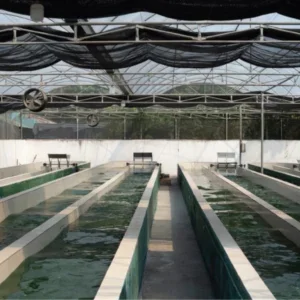
Within a constantly evolving industry, how would you define your role at Bell Flavors & Fragrances EMEA?
Agneta Hoffmann: My role as a marketing professional within the flavour industry, on the one hand, consists of corporate communications for Bell as a company as well as defining and executing our marketing and brand strategy. On the other hand, I am also analysing the market dynamics and customer needs, as well as consumer habits and expectations as a foundation for new developments. My aim is to improve the taste and smell of food and beverage products, but also to deliver functional benefits.
0.1%
Final food that is flavouring.
EFFA
If you work in marketing, there is no typical working day; every day has challenges and new tasks. But on a more routine day, I usually sit together with my organisation, or crossfunctional teams either from marketing, R&D, sales or management, and discuss consumer and product trends that are driving the market – what Bell is able to contribute in taste and smell, but also functionality. It’s always an ideation process to start with. We also discuss current projects and develop new concepts for various product categories, and whether this concerns taste or functionality. Apart from that, I spend a lot of time carrying out market and trend research in order to understand the underlying consumer insights and predict upcoming dynamics. Those insights will then be transferred into concepts and strategies.
10%
EFFA Turnover is invested in R&D.
EFFA
As I am constantly reflecting on consumer needs and market trends, my job does significantly contribute to developing high-quality food and drinks for everybody to enjoy. It is my goal and the goal of the whole team to create solutions for the future of food and beverages, and in the end, to be part of people’s everyday lives. This is based on delivering benefits for the consumer, in terms of clean labelling and healthy attributes such as reduced sugar, but also relies on selecting high-quality, natural ingredients, such as botanical extracts. At the same time, it is very important to create a sense of indulgence with taste profiles that cater to the specific demands of the consumers. And as I am a consumer myself, I want to have natural and healthy products without compromising on taste. In the end, the vision of our industry is to create sustainable and future-oriented solutions for the growing needs of the food and beverage industry with a strong focus on high-quality ingredients and by respecting and forecasting the needs of the consumers.
How does this impact on the industry with regard to trends?
Finding the taste of tomorrow is very much driven by connecting the dots within trend and market research. Once you have a clear understanding of the industry and its major drivers, you become very passionate and attentive to emerging trends and changes that will lead the industry in the next few years, as you also develop an intuition for trends within taste preferences. I am dealing with consumer insights on a day-to-day basis, leading a team that is assigned to an individual business unit and therefore can figure out in-depth taste trends at an early stage.
There are certain flavour trends that will be driving our industry for several years, such as the naturalness trend and the ongoing trend towards ethnic-diverse cuisines. But there are also very specific flavour trends based on shortterm consumer hypes and lifestyle trends that can be predicted on a yearly basis, only. Bell therefore creates its annual flavour and trend forecast, which is launched by the beginning of each year. Within this forecast, we are not only predicting major flavour trends for the upcoming period, we also try to influence the market as there are diverse possibilities to reflect trends in very specific taste creations and profiles. Our industry itself therefore is an influencer, too – contributing significantly in delivering new taste profiles based on future outlooks and market expertise.
I am analysing the different markets in terms of dynamics, needs, consumer insights and taste preferences, as well as target trends. This knowledge will then be put into a measurable content and be used to evaluate segments in order to detect major possibilities for flavour development and to help our customers in creating winning consumer goods. I am anticipating trends by identifying consumers’ aspirations using macro and mega trends, insights from Bell’s global network, sensory profiles as well as regulatory needs and claims. Those detected trends will then be discussed within my organisation and be used for ideation on innovative flavour creations. We will not only use those insights for our proactive developments, but also for customer-initiated projects and product developments.
This, in the end, can lead to creating taste profiles for range extensions, recipe adjustments or for developing new markets and target groups. To give an example, at the beginning of the year my team and I were analysing the cross-segmental impact of the craft movement in beverages and how this could be an innovation implication for various food categories. After figuring out the major values of this trend and the perception of the consumer, we convinced our savoury team to engage into the topic that led to the creation of very inspiring snack seasonings that now invigorate the snacking category.
10,000
Flavouring constituents are identified in food.
EFFA
What are the unique elements of your role?
First of all, it’s the overall passion, creativity and innovative energy within our organisation that drives us to develop new and inspiring solutions. Second, it’s the fascination about consumer insights, to understand what drives their consumption behaviour and what kind of different needs consumers express. To combine that knowledge with market dynamics and current trends to discover future targets is what makes it so interesting for me. I enjoy working not only in a global operating team, but also for global operating customers. Being a part of new product developments and seeing the same products being launched on the market is fulfilling.
I am not only promoting one final product, I am covering diverse market segments creating product solutions and services. Our approach is to be our customers’ partner and to develop products in close cooperation, which also means that as a marketer, I am involved in many marketing and product strategies, and can be creative in many ways. Furthermore, every part of marketing within the flavour industry is very consumer-related, as food and beverages in general are a highly emotional topic. I also enjoy that the flavour and FMCG industry is very future-oriented and trend-driven.
My impression of the flavour industry has always been positive. The industry itself is exceptionally forward-looking, driven by constant learnings and contributing in developments for future nutrition. I am also impressed by the way the whole industry engages in actions to increase sustainability, and ensures and sets values for its employees. Additionally, this industry, contrary to many others, is very passionate and enthusiastic. The people working in this sector are fascinated by their jobs and aim for giving their best – either to create the most innovative products, or to ensure the utmost safety. The level of teamwork therefore is very high, creating cross-divisional engagement and collaborative efforts.
How do you keep up to date with the latest standards and innovations within the sector?
When I started my career in the flavour industry, I was extensively trained on the creation, production and regulatory, as well as qualityensuring methods of flavours and extracts. At Bell, we also take part in internal sensory trainings each week, by default. Hence, ensuring that the whole team has the same understanding of taste descriptors and raw materials as a base of our industry. Being an integral part of our corporate values, Bell also offers internal and external training for me and my colleagues on project management, application technology, regulatory changes and others. In addition to the standard training, I am able to take part in various kinds of leadership training, as Bell implemented a dedicated career path programme. This represents a great opportunity for professional development and constantly extending my knowledge. It further provides an important foundation to keep track in this fast-moving industry.
Working in this industry is not only exciting due to the variety of fields you can explore, it is also driven by constant changes, new trends and needs – which is a main driving force for marketers and creative people. And above all, it’s an industry everyone can relate to, as we are all consumers.
Jimena Gomez de la Flor, communications director at EFFA, shares insights of the campaign
“It all started when I joined this industry. I was impressed by the level of commitment and passion that each and every person I met showed towards their job. You can really feel that they love what they do, that they are proud to be responsible for something as beautiful as adding flavour, pleasure and joy to people’s food. I thought that it was very important to convey this passion within the flavour industry. At the end of the day, this industry is all about passion – for food, for flavours and having passionate people behind it is what makes it so special.
“At the EFFA Communications Working Group, we made demystifying the industry, and flavourings in general – a priority in our communication strategy. The flavour industry, although it has a crucial impact on final food products, is not widely known or understood. This campaign is the result of this journey towards more transparency and opens the industry to the general public. We thought that it was important to show all the know-how and passion behind each flavour, all the different professions, processes, departments and how they interact with each other; after all, no one is better placed than the flavour professionals themselves to explain that.
“By putting a face and a background to each of the professions, we can better discover the richness of the processes, how much they are connected to the love of food, the power of emotions and memories, and how there is a personal touch from each of the people from this industry to the food that the general public can find in supermarkets.”
Source: EFFA





